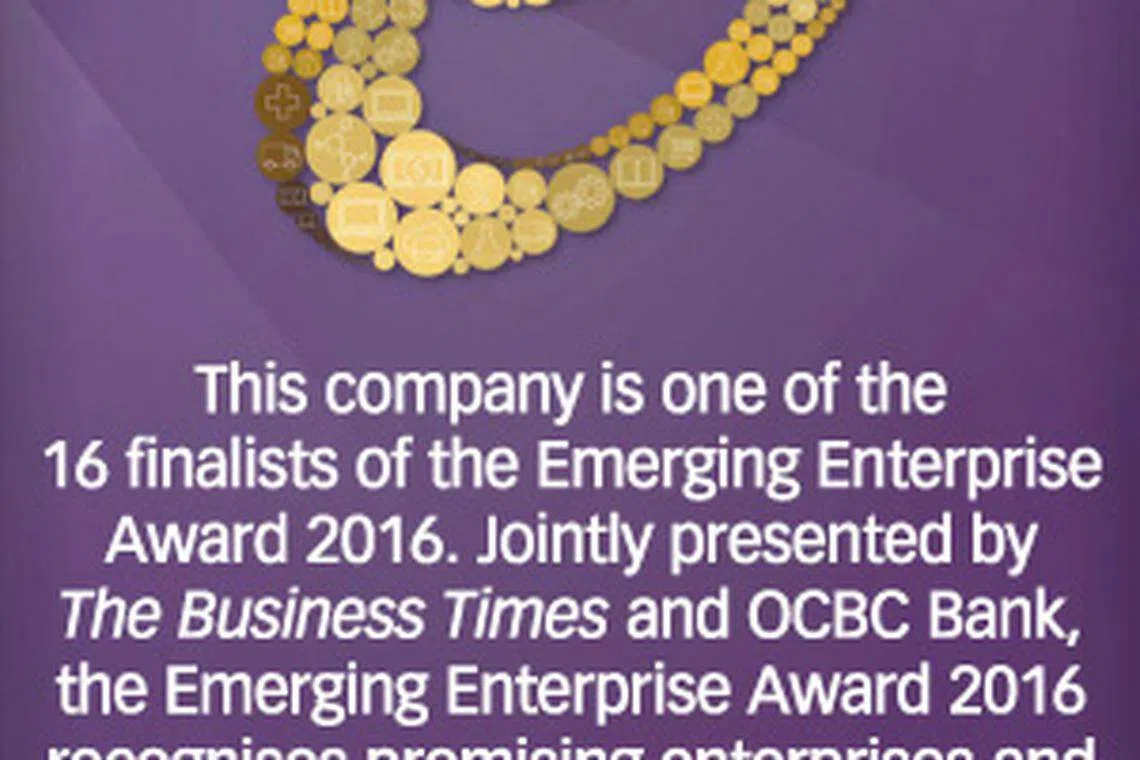Improving lives, saving the Earth
Sassax was started by two friends to make a difference.
A COUPLE of years back, childhood friends Ronnie See and Cheang Tsu-fei were deliberating over starting a new business together. Last year, their dreams were realised. And so began the story of Sassax Pte Ltd.
Having worked respectively in the palm oil and renewable energy industries, the founders of the energy and commodity company are no strangers to the energy field. This time, however, they wanted to venture into something that could impact people as well.
"People are now concerned about the environment, water and electricity. So the best business to start at this point in time is one that is sustainable and could help people," said Mr See.
According to Ms Cheang, the Singapore-based company's current focus is on second and third generation fuels as well as electricity.
"Unlike first generation fuels, which are obtained from food sources like palm oil or soya oil, the second and third generations are derived from waste and residue such as used cooking oil or free fatty acid," she added.
In accordance with the European Union Renewable Energy directive, the second generation fuels are by default expected to provide about 83 per cent in green house gas savings.
Navigate Asia in
a new global order
Get the insights delivered to your inbox.
When asked how they get access to the resources, Mr See replied that they are obtained mainly from restaurants and street vendors in places such as Malaysia, Cambodia, Myanmar, Thailand, Taiwan and Turkey.
Although the company is run by just the two of them, the quality and effort of their work is not compromised, said Mr See. To ensure that the resources received are of high quality, both of them personally make trips to these places.
"We have set up collection and processing centres in (those) countries, and we will go down and manage the collection sites to make sure that the equipment and all that we collect is not water or rubbish because sometimes they do give us rubbish."
The vendors are monetarily incentivised to dispose of their used cooking oil. The oil is then sent to the processing centres and converted to bio-diesels. Then the fuels are packed and shipped to the end-users in Europe for use in transportation and machinery.
According to Ms Cheang, getting the vendors to dispose of the waste properly encourages sustainability.
"Apart from creating another source of income for the vendors, the process also encourages awareness of a sustainable environment because most vendors will then avoid throwing oil into the drains and clogging them," she said.
Fuels apart, Mr See said that they have innovated a technology that is capable of saving electricity up to 50 per cent.
"Even the best product in the market currently could give you about 5 to 10 per cent savings, but we are able to give a minimum 45 to 50 per cent savings."
Elaborating on the use of the new technology, Mr See said that the device functions like a power bank with several inlets. Electricity from the grid, car batteries or solar power could be used to charge it.
"When you charge the device for four hours, you'll get about six to seven hours of supply, indirectly saving about 45 per cent of electricity," he explained.
The device is currently under meta-testing by the machinery at a Cambodia collection centre and is expected to launch across the country's industrial factories in about three months.
"In places like Cambodia, Myanmar, getting electricity is very difficult because sometimes you only get electricity three days per week and so the factories are all suffering."
With the ongoing difficulty, Mr See and Ms Cheang are confident that this new device would improve the lives of the people and the production process.
Even as a young company, challenges are not avoidable. One of the main challenges that Sassax faces is getting hold of the sources of materials during a natural disaster.
"The earthquake in Taiwan and military coup in Turkey this year had affected our infrastructures and loading," said Ms Cheang.
However, in such circumstances, they would substitute the supply from other countries.
Both Ms Cheang and Mr See are optimistic about Sassax's future growth.
This year, the company recorded a total revenue of US$11 million and a net profit US$1.2 million at the end of its first financial year.
Ms Cheang and Mr See are looking to grow total revenue to US$40 million and US$50 million in 2017 and 2018, respectively.
The friends have also planned to start their own bio-diesel plant in 2018. "Currently, we are not producing because we want to make sure that we get hold of all the raw materials, used and waste oil before we could set up our own production," said Ms Cheang.
She also added that the new plant will be located in Johor Baru, Malaysia and the end-users will depend on the market conditions when the plant is operational.
There are also intentions to ramp up the power bank concept in Europe by including it in all new houses through building developers.
Ms Cheang mentioned that Europe would be a good place to start as electricity there is expensive.
Sassax is certified by the European Union as a sustainable company under the International Sustainability & Carbon Certification scheme.

Copyright SPH Media. All rights reserved.
